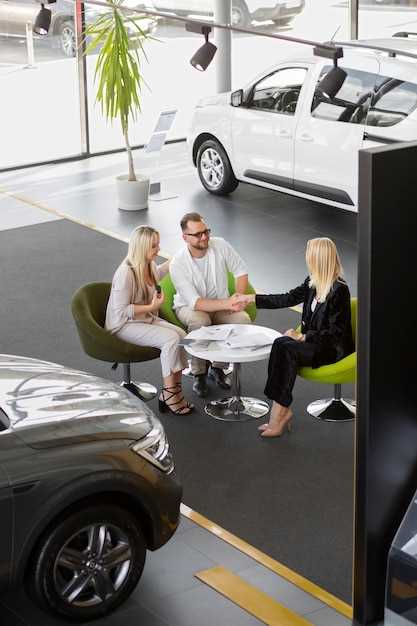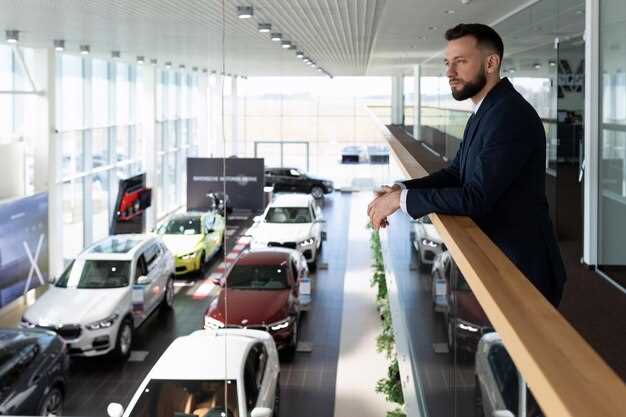
Hosting a car auction can be an exciting opportunity for both car enthusiasts and sellers alike. However, the key to a successful event lies in meticulous planning. From selecting the right venue to crafting an effective marketing strategy, each step is crucial in ensuring that your auction attracts potential buyers and features a diverse array of vehicles.
One of the fundamental aspects of auction hosting is understanding your target audience. Knowing who your potential bidders are will help you tailor the event to their interests, enhancing the overall experience and driving sales. Furthermore, a seamless execution during the actual event is imperative; this includes everything from registration processes to managing bids efficiently.
In this guide, we will explore essential tips and strategies for successfully hosting a car auction event. Whether you are a seasoned organizer or a first-time host, our insights will help you navigate the complexities of the auction world, ensuring that your event not only meets expectations but exceeds them.
Selecting the Right Venue and Setting Up the Auction Space

Choosing the appropriate venue is crucial for the success of your car auction event. Ensure the location is easily accessible for attendees, with ample parking and transportation options. Consider the size of the venue; it should accommodate the number of participants and vehicles without feeling cramped. Evaluate the facilities available, such as restrooms, seating, and areas for refreshments, which contribute to a comfortable experience for bidders.
When setting up the auction space, layout is essential. Create a clear flow for attendees, allowing for easy movement between displays of vehicles and the bidding area. Designate specific zones for registration, auctioning, and social interaction. Utilize signage to guide participants and highlight key areas, ensuring everyone knows where to go. Arrange vehicles in a manner that showcases them effectively, allowing bidders to examine them closely.
Consider the auction’s atmosphere; proper lighting and sound systems enhance the experience. Ensure that the bidding area is equipped with microphones and speakers so that everyone can hear the auctioneer clearly. Decorate the space in a way that reflects the theme of the event, creating an inviting ambiance without being overwhelming. Adequate preparation in venue selection and setup is fundamental in executing a successful car auction event.
Marketing Strategies to Attract Buyers and Sellers
Successful car auctions rely heavily on effective marketing strategies to draw in both buyers and sellers. To ensure a vibrant event, it’s essential to engage in diligent planning and targeted outreach. Begin by identifying your target audience, which can include car enthusiasts, collectors, and individuals looking to sell their vehicles. Understanding their needs and preferences will help tailor your marketing efforts.
Utilizing digital marketing platforms is a crucial aspect of this strategy. Create a visually appealing website dedicated to the auction event, featuring detailed information about the cars for sale, auction dates, and bidding procedures. Leverage social media platforms such as Facebook, Instagram, and Twitter to generate buzz. Regular updates, sneak peeks of auction items, and engaging content can captivate prospective buyers. Consider implementing paid advertisements on these platforms to widen your reach and attract a larger audience.
Email marketing also plays a significant role. Compile a list of potential buyers and sellers through past auction participants or local automotive clubs. Send out newsletters containing information on upcoming events, featured vehicles, and highlights from prior auctions. Personalization in communication can enhance engagement and drive attendance.
Partnerships with local businesses and automotive-related organizations can further enhance your visibility. Collaborate with car dealerships, automotive repair shops, and car clubs to promote the auction through their networks. Sponsorship opportunities can create additional marketing channels while also providing mutual benefits.
Finally, arrange promotional events leading up to the auction. Hosting a preview day where prospective buyers can examine featured vehicles adds excitement and encourages participation. Offering incentives, such as discounts for early registration or referral bonuses, can also motivate sellers to participate and attract more buyers. By employing these strategies, you can maximize attendance and create a dynamic environment for your car auction event.
Establishing Clear Bidding Rules and Auction Procedures

When hosting a car auction event, establishing clear bidding rules and procedures is essential for a seamless experience. Begin by defining the bidding increments, specifying the minimum amount by which bids can increase. This helps maintain order and ensures that all participants understand the pacing of the auction.
Next, outline the auction format. Decide whether it will be a live auction, online bidding, or a combination of both. Clearly communicate the process for each format, including how participants can place bids and the method of tracking these bids during the event.
It is also critical to set the terms for registration. Ensure that bidders are aware of any fees associated with participating in the auction, including buyer’s premiums or deposits. Make the registration process straightforward, requiring necessary identification and payment methods upfront, to streamline bidding procedures on the day of the event.
Provide guidelines for bid transparency. Establish procedures for how bids will be recorded and announced, keeping participants informed of current bid amounts and any potential issues that may arise during the auction. This fosters trust and encourages active participation.
Lastly, clearly communicate rules regarding disputes or challenges to bids. Outline the process for addressing these issues fairly and promptly, ensuring that all attendees feel valued and heard. By implementing comprehensive rules and procedures, you can create an organized and enjoyable environment for bidders, enhancing the overall success of your auction event.

